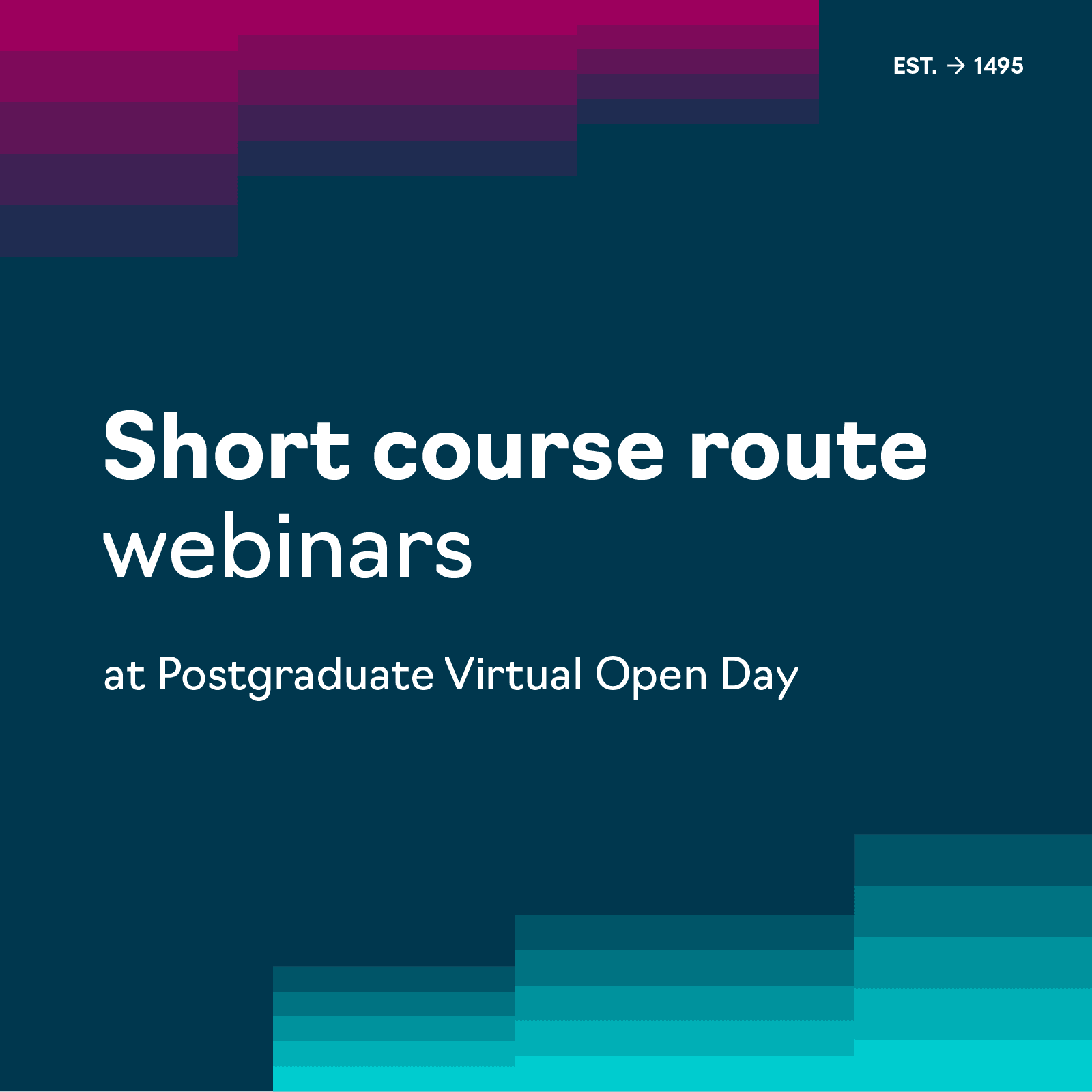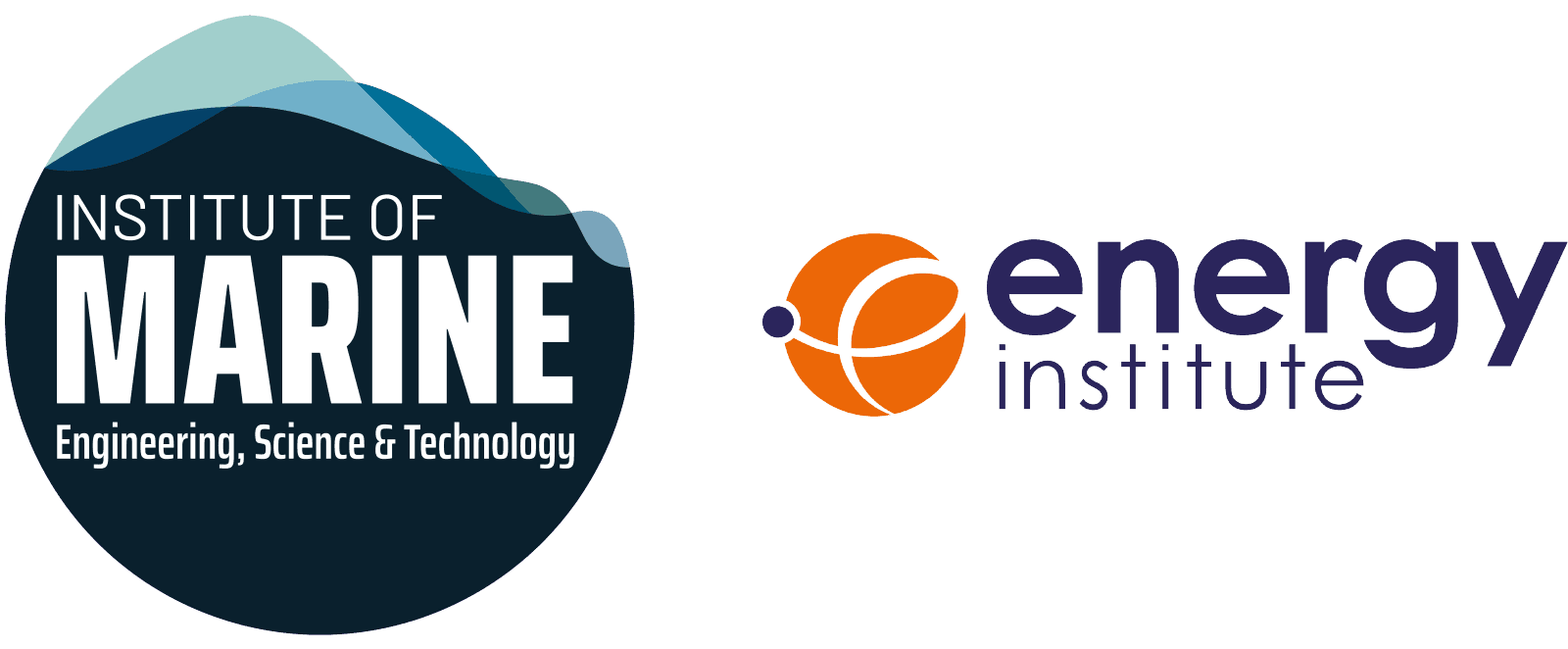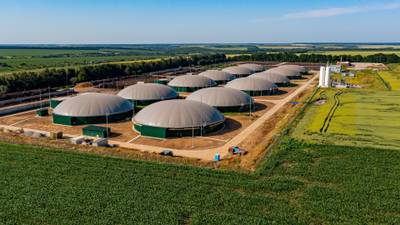
Join our short course route webinar
Interested in taking the short course route to a Masters or postgraduate qualification?
Join our online Postgraduate Virtual Open Day on Thursday 12 March.
We’ll be hosting two live webinars there, explaining how the short course route works and answering all your questions. See you there!
- Morning webinar: 10.50am (GMT)
- Evening webinar: 5.50pm (GMT)
Earn an accredited Masters in Safety and Reliability Engineering without taking a career break.
Join an accredited online degree that delivers the specialist safety training many undergraduate engineering degrees lack.
- Enhance your engineering CV with expertise in the safety and reliability of complex engineering systems.
- Learn from the best in the business, with a university at the forefront of teaching and professional training for ambitious engineers.
- Master the concepts and tools of safety and risk management applicable to all industries, including oil and gas, chemical, transport and construction.
You’ll train in safety engineering, reliability engineering and loss prevention. You’ll learn to assess and control industrial risks and to create high-integrity engineering systems. And you’ll cover crucial human factors and legislative frameworks too.
Study online, part-time with our team of engineers, industry professionals, and practising safety and reliability specialists.
You can also study this degree full-time on campus.

Fits around full-time work
This degree fits around full-time work, with flexible hours and 24/7 study access.

You’re in expert hands
We’ve been delivering online and distance learning for decades.

20% alumni discount
University of Aberdeen alumni receive 20% off fees for this online degree.

Accredited online degree
This online MSc is accredited by the:
Industry links
You’ll be joining a university with close industry links. We deliver industry-supportive and responsive safety research in a number of sectors.
Our working partnerships mean you’ll:
- enjoy lectures taught by industry professionals
- connect with the latest career opportunities.
Your degree content is also developed and reviewed by an Industry Advisory Board. This group of experienced professionals, drawn from a range of sectors, ensures your training is kept up-to-date and industry-ready.
What you’ll study
You can choose to study for a:
- Masters (180 credits)
- exit early with a Postgraduate Diploma (120 credits)
- exit early with a Postgraduate Certificate (60 credits), or
- start with one of the short courses that make up this degree (15 credits).
You can build your way to a qualification one short course at a time.
How you’ll study
Online learning
This distance learning MSc in Safety and Reliability Engineering is delivered flexibly, 100% online.
You can learn with us anywhere in the world, no student visa required, and set your study hours to suit you.
Your teaching
Teaching is delivered through MyAberdeen, our online Virtual Learning Environment (VLE). It holds all the materials, tools and support you’ll need in your studies. Take a look around MyAberdeen.
You can access your learning materials on computer, smartphone and laptop, 24 hours a day. You’ll find a range of resources available, including online access to our award-winning Sir Duncan Rice Library.
Your tutors
This degree is delivered by our School of Engineering.
You’ll learn from a team of internationally experienced engineers and industry professionals who have worked on major projects around the world. You’ll benefit from their expertise and enjoy lectures from practising safety and reliability specialists.
Your peers
You’ll be joining students from all over the globe, all sharing your passion for engineering. Through group projects, you’ll develop your creativity, leadership and team-building skills. We’ll encourage your initiative and personal responsibility in implementing projects safely and successfully.
This degree is assessed online.
We’ll use a range of online assessment methods throughout your studies. These may include:
- written coursework
- online tests
- reports and projects.
Hours for taught courses
If you plan to study part-time, we recommend you take no more than 30 credits per term. Students typically take one or two 15-credit short courses per term.
15 credits
- Around 150 hours of study and assessment time to complete.
- You’ll study 10 – 15 hours per week per term, plus more at assessment times.
30 credits
- Around 300 hours of study and assessment time to complete.
- You’ll study 20 – 30 hours per week per term, plus more at assessment times.
This is an indicative guide to the time required for a typical student at this level to achieve the learning outcomes. This includes time for independent study, as well as teaching and assessments.
You can largely set your own study hours each week to cover the materials. MyAberdeen is available 24/7, so you can log in and study when it suits you.
Activities at fixed times
Some activities will be scheduled for fixed times, such as online meetings with your tutor or assessments with deadlines. But otherwise, you can access and work through each course at your convenience.
Hours for 60-credit projects and dissertations
A 60-credit project or dissertation is around 600 hours of study time.
This is around one term of full-time study.
You can dedicate a full term to your project or dissertation and work on it full-time. Or you can complete it part-time, spreading the hours you dedicate to it over two terms.
When you study with us, you can expect a first-class support structure so that you’re never alone in your studies.
But learning online does mean you have to motivate yourself and manage your own time.
Your most important commitment will be time – the time to work through, reflect on and understand your teaching materials.
Before you start a course that involves a high degree of independent study, we recommend looking at the time you will be able to devote to your studies each week:
- Be realistic
- Create a weekly schedule as a guide
If you have any questions about studying online, get in touch with our friendly team. We’re here to help.
Our first-class support structure will ensure that you aren’t alone in your studies. You’ll have contact with your tutors via MyAberdeen and email. You can use social media and discussion boards to chat with your fellow students too.
We provide a wide range of services to support you in your studies and beyond:
- Careers and Employability Service
- Disability support
- IT support
- Library support
- Student Support Service – help with finances, wellbeing and non-academic issues
- Student Learning Service – study support, with advice sessions available
- Aberdeen University Students’ Association (AUSA) – run by students for students
- Toolkit – clever apps and free training that can make your study life easier
Wherever you are in the world, you’ll feel part of our very special Aberdeen learning community.
We’re a member of the Access scheme run by the Society of College, National and University Libraries (SCONUL).
Access study spaces, books and journals in your area
The SCONUL Access scheme allows you, as a University of Aberdeen student, to access books and resources at university libraries across the UK and Ireland, or visit them for a quiet place to study.
You’ll be able to use study spaces, books and journals at over 150 university libraries which belong to the scheme.
Your support team
Our friendly team are here to answer any queries you have about your studies.

Dr Srinivas Sriramula
Srinivas is the degree coordinator. He’ll be on hand to answer any questions about degree content before you start and to help you throughout your studies.

Get in touch
The online education team is here to answer any questions you have right now about this qualification, or about studying online.
Ask us a questionWhere this will take you
Earn the same accredited Masters qualification online as you would on campus
You’ll graduate with an accredited MSc in Safety and Reliability Engineering from the University of Aberdeen, one of the most respected degrees of its kind in the UK.
You’ll receive exactly the same degree qualification online as you would on campus. Your degree title will not mention online or distance learning.
Your MSc qualification will be recognised by industry and educational institutions around the world, opening up international opportunities.
Careers
This MSc will prepare you to find work in a range of sectors, including oil and gas, chemicals, transport and construction.
You’ll be qualified to take up roles including:
- Health and Safety Engineer
- Project Technical Safety Engineer
- Safety and Reliability Engineer
- Technical Safety Engineer
- Technical Safety Operator.
There’s a continuing demand for engineers with specialist knowledge in safety engineering, reliability engineering and loss prevention across industries.

Lifelong career support
Our career support doesn’t stop when you graduate.
You have access to our free careers service while you study, and beyond.
- 1:1 appointments
- CV checks
- Interview prep
- Job opportunities
Fees and funding
Tuition fees typically increase each year. A 3% fee rise has been confirmed for academic years 2026/27, 2027/28 and 2028/29.
Our indicative costs include a 3% fee rise each year.
Pay as you go
This is a pay-as-you-go qualification.
You do not have to pay the full tuition fee upfront.
You can spread the cost and pay as you go, term by term.
How it works
- You decide how many credits to study for each term.
- At the start of term, you pay only for the credits you’re taking that term.
- This gives you control over your costs and workload for each term of your qualification.

Your personalised cost breakdown
Use the degree scheduler to plan your studies and see your cost breakdown, term by term.
Learning resources
Access to all the essential books and resources you need are included in your tuition fee. They’ll be made available to you online and you do not have to buy your own copies.
We also provide optional recommended reading lists. Many of these resources are available electronically through our library, although purchases may be required if you wish to read the full list.
Printing
You may want to set aside a small budget for printing, depending on how you like to work.
There are several ways you may be able to get help funding your studies:
- Employer sponsorship – we accept full and partial fee payments from sponsors
- Student loans
- Scholarships – search our funding database for scholarships
Find out more about funding options.
Student card
All our students are entitled to a University of Aberdeen student card. This gives you access to a range of student discounts around the city and online.
20% Alumni discount
You’re entitled to 20% off our postgraduate taught degrees and short courses if you have a degree from the University of Aberdeen. View Alumni discount details.
How discounts work
Discounts are applied during your application process. You can only use one discount per application.
Entry requirements
MSc
Our minimum entry requirements for this MSc are:
- a 2:2 UK honours degree (or equivalent) in any branch of Engineering, Mathematics or Physics.
You must also have covered the following key subjects: Mathematics and Mechanical subjects, such as stress analysis, strength of materials, and thermodynamics.
These minimum entry requirements are given as a guide and do not guarantee entry.
Short course route to online MSc Safety and Reliability Engineering
If you prefer to start with a short course, you may be able to use our online short courses as a route into this degree.
Find out about our short course route to entryEntry requirements
We welcome students from all over the world.
See the minimum entry requirements above. If you do not have qualifications from the UK, check equivalent qualifications from your country.
Visa requirements
You do not need a student visa to study online with us.
English language requirements
Teaching is delivered in English.
If English is not your first language, use our English requirements checklist to see if you need to provide evidence of your English language skills when you apply.
English language tests and scores
If you do need to provide English language test scores, these are the tests and minimum scores we accept for this course or degree.
These are our Postgraduate Standard requirements.
IELTS Academic, IELTS UKVI Academic, or IELTS Online (not IELTS Indicator or IELTS General Training)
- 6.5 overall
- 5.5 for listening, reading and speaking
- 6.0 for writing
TOEFL iBT or TOEFL iBT Home Edition
- 90 overall
- 17 for listening
- 18 for reading
- 20 for speaking
- 21 for writing
- TOEFL DI code is 0818
Cambridge English: B2 First, C1 Advanced, or C2 Proficiency
- 176 overall
- 162 for listening, reading and speaking
- 169 for writing
LanguageCert Academic / LanguageCert Academic SELT
- 70 overall
- 60 for listening, reading and speaking
- 65 for writing
Oxford ELLT Digital – English Language Level Test Online
- 7.0 overall
- 5.0 for listening, reading and speaking
- 6.0 for writing
PTE Academic (online test not accepted)
- 62 overall
- 59 for listening, reading, speaking and writing
Skills for English: SELT
- B2 pass with merit
Duolingo – tests taken from 1 July 2024 onward
- 120 overall
- 95 for listening, reading and speaking
- 105 for writing
University of Aberdeen English Pre-sessional Programme (PSE)
- Pass
- Valid for one year. Refresher can be offered if out of date
Pre-sessional academic English preparation programmes undertaken at other UK universities
- Pass at an equivalent of 6.5 (C1)
- B2 in all four skills
- Certification must be within one year prior to the start of your course
For full information about language requirements, see our English Language Requirements page.
You apply through our online Applicant Portal. It allows you to upload relevant qualifications and documents.
There is no application fee for our online programmes.
What you need to apply
- Degree transcript
- Personal statement
- Degree certificate
- CV / Resume
Apply now
Start with our step-by-step guide. It explains degree transcripts, what to write in your personal statement and how to use our Applicant Portal.
You can apply to start in either September or January.
Apply as early as you can. This is so we have time to review your application and get a decision to you. We also want to ensure you have time to enrol before teaching starts.
September 2026 intake
For our September 2026 intake, the application deadline is 6 September 2026.
You will need to accept your offer and provide any outstanding documents to meet the conditions of your offer by 13 September 2026.
Teaching starts on 21 September 2026.
January 2027 intake
Teaching starts on 25 January 2027.
Application deadlines will be announced in due course.
You will need access to:
A computer (PC, laptop or Mac) with an up-to-date operating system
Most teaching materials are smartphone- and tablet-friendly. But we recommend a proper laptop or desktop for completing assignments comfortably.
Reliable internet access
We recommend:
- a wired connection
- a minimum download speed of 2 Mbps so you can take part fully in live sessions.
Speakers or headphones
- We recommend a headset with built-in microphone and earphones if you’re likely to study in an environment with background noise.
- A webcam is optional, but you may like to use one for some interactive sessions.
Software
We’ll give you access to Office365 applications. This means you can use online versions of Microsoft Word, Excel, PowerPoint and OneDrive and install these programs on up to five personal devices.
If your course requires specialist software, we’ll provide you with access to this and a licence that lasts throughout your studies.
See our detailed IT requirements for more information.
Try our degree scheduler

Choose your courses
See all the courses that are part of this degree and choose what you want to study.

Manage your study schedule
Control the pace and cost of your degree. Decide how much you want to study each term.

Save to your wishlist
Save your schedule to your wishlist so you can view and edit anytime.
Master of Science
180 credits
£15,040
This indicative cost is based on 180 credits of study over 28 months, starting in September 2026.
Start with a short course
£1,395
This indicative cost is based on 15 credits of study in the 2026/27 academic year.
Apply for this programme
- Start month
- September or January
- Indicative cost
- £15,040
This indicative cost is based on 180 credits of study over 28 months, starting in September 2026.
Apply via our Applicant Portal















